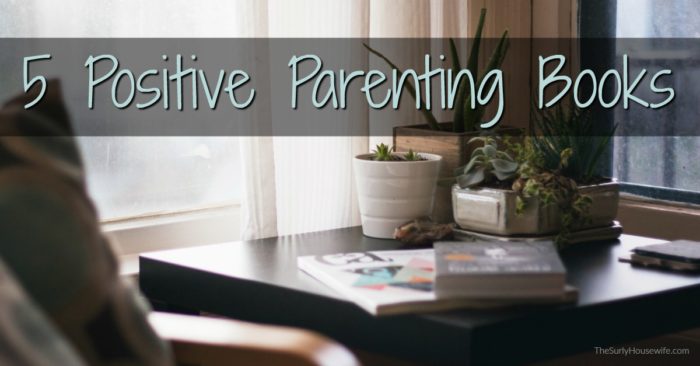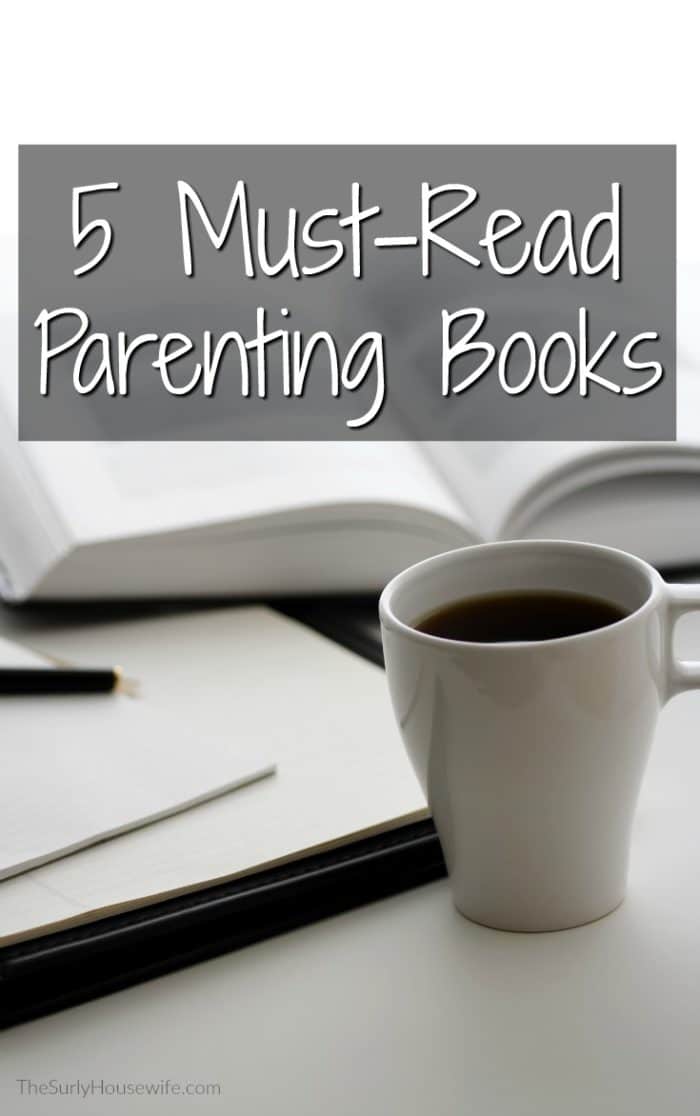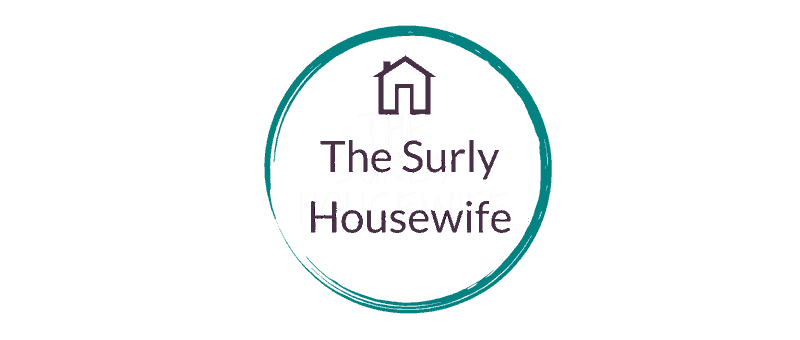No one told you there would be homework when it came to parenting, but with these five positive parenting books, you will feel like an expert in no time!

They say kids don’t come with instruction manuals, but they kind of do. A simple Amazon search of “parenting books” yields 228,572 results. My local library: 1681 results! The resources for parents are out there. It’s the sorting through them that is daunting and, at times, discouraging. Today I am sharing 5 parenting books I absolutely love and highly recommend.
This post contains affiliate links. If you click and make a purchase, we earn a commission at NO extra cost to you. For more information, please read my full disclosure policy.
Positive Parenting Books for the Early Years
What to Expect the First Year by Heidi Murkoff
This book was my savior during my first year as a mom. Sleeping patterns, cluster feedings, teething, constipation, this book has it all. The month-by-month format makes it easy to search for answers to questions you desperately need at 4 am when you baby won’t.stop.nursing. It also focuses on the changes parents are facing as well. The book is updated frequently so parents get the newest answers to their current worries and concerns.
Supernanny: How to Get the Best from your Children by Jo Frost
I think in another life I was a British nanny who didn’t take any guff from anyone. That is Jo Frost in a nutshell and I love her for it! Jo covers three basic categories in this book: ages and stages, routines and rules, and setting boundaries. The Ages and Stages section is amazing for concisely learning what kids need during each stage of development as well as coping strategies for that stage.
Routines, rules, and boundaries are the biggies for getting the best from your kids. There wasn’t much Jo couldn’t solve on her tv show that wasn’t from setting up routines, rules, and boundaries. We would have been lost with her time-out routine and bedtime routine. There is also a troubleshooting section of the book which covers things from toilet training to car rides to shopping trips. It’s not hugely in-depth but provides a great jumping off point for answers to your concerns.
Emotional Coaching
Kids, Parents, and Power Struggles: Winning for a LIfetime by Mary Sheedy Kurinka
The basic premise of this book is “emotions are the fuel behind power struggles.” There are feelings that can’t be expressed and needs that can’t met and that is what your child is trying to convey. Once my kids outgrew the time-out stage I was having a hard time handling their misbehavior. This book was such a lifesaver as it made me realize I wasn’t addressing the right needs and emotions. And let’s face it, I have two girls, we have a whole lotta emotions running through this house. I think of this book as emotional coaching because it provides tips on managing strong emotions and strategies to implement. For example, you learn how to identify your own temperament as well as the temperament of your child. You also learn about identifying emotions, what they make us feel, and how to express them in a healthy way.
Communication Coaching
How to Talk so Kids will Listen and Listen so Kids will Talk by Adele Faber
Once your kids start to talk a strange thing happens. You talk to them like you have talked to people your whole life, but your kids seem to not understand a single thing you say. This book is a must-have communication tool. You will learn about listening with empathy and engaging cooperation rather than engaging in a shouting match.
What I love most about this book are the real life examples the authors give from their time in parenting workshops. It provides a real world connection which is very reassuring. It also gives you examples of different ways of saying the same thing but getting the desired result. For example, your child puts her wet towel on your bed. Faber provides 5 different ways to respond to this: describe the problem, give information, say it with a word, describe what you feel, or write a note. One isn’t right or wrong, just varied ways of getting the result: your kid taking the towel off your damn bed 😉 It’s up to you to figure out which way your child listens.
Parenting The Later Years
Free-Range Kids: How to Raise Safe, Self-Reliant Children (Without Going Nuts with Worry) by Lenore Skenazy
Dubbed the “world’s worst mom” after allowing her nine-year old son to ride the subway alone, Skenazy breaks down how to raise a free-range child. You might think this book is all about hippie parenting and letting kids have all the control in the family. Let me tell you it is anything but. Lenore has something I love in people: common sense and research. She plays things out. “My kids can’t walk to school alone. They will get kidnapped!” Skenazy breaks down the stats on what your kids are actually in danger of.
I LOVE this book and think it should be required for all homeschool parents! The book contains two parts: the 14 free-range commandments and the free-range guide to life. Her research on all the “dangers” kids face with have you second guessing a lot about the way you parent. I adore Lenore’s writing style and humor. Merging laughter and education is my favorite way to learn.
One of my favorite quotes from this book is as follows: “Empowerment is actually what will make your child safer. You have a right to call attention to yourself, resist a grown-up, stand up for yourself, to be impolite, and ask others for help.”
Learning is a lifelong process and it certainly doesn’t end when we become parents. I think I have learned more after having kids than I ever did before. Kids may push our buttons but they also expand our minds and our knowledge.

